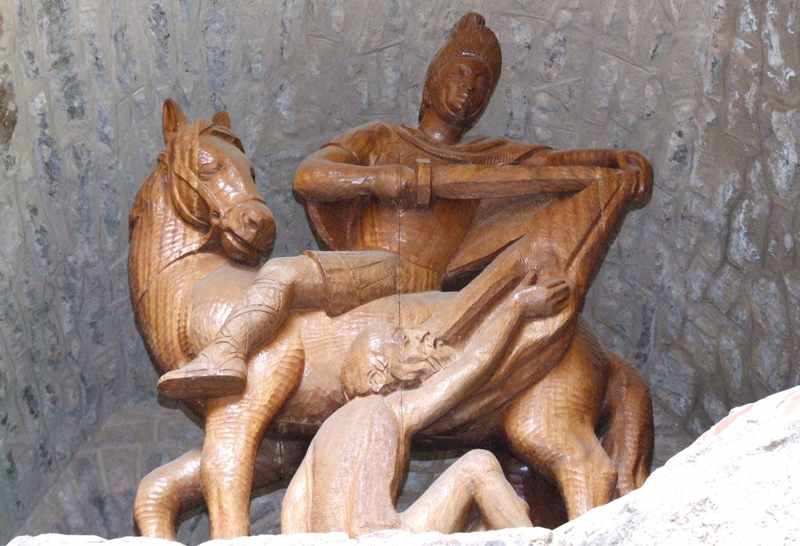 Saint Martin of Tours was born in in Savaria, Pannonia in either the year 316 or 336 AD. That region is what is today the nation of Hungary. His father was a tribune, which is a high-ranking officer in the Imperial Horse Guard. Martin and his family went with his father when he was assigned to a post at Ticinum, in Northern Italy. It is here that Martin would grow up.
Saint Martin of Tours was born in in Savaria, Pannonia in either the year 316 or 336 AD. That region is what is today the nation of Hungary. His father was a tribune, which is a high-ranking officer in the Imperial Horse Guard. Martin and his family went with his father when he was assigned to a post at Ticinum, in Northern Italy. It is here that Martin would grow up.
Just before Martin was born, Christianity was legalized in the Roman Empire and the bloody persecution of Christians soon came to an end. It was not the official religion of the State, but it could be practiced and proclaimed openly. The Gospel message soon flourished in ancient Rome, transforming the empire. Martin's parents were pagans, but at the age of 10, Martin chose to respond to the call of the Gospel and become a Christian.
At the age of fifteen, Martin was required to follow his father into the cavalry corps of the Roman military. By the time he was 18, Martin is believed to have served in Gaul, and also eventually Milan and Treves. Scholars think he served as part of the emperor's guard.
As a young soldier, Martin encountered a beggar in Amiens. The beggar was unclothed and it was very cold. Martin removed his cloak and with his sword, he cut it in half. He gave this half to the beggar and dressed himself in the remnant. That night, Martin had a vision in which Christ appeared to him. The vision spoke to him, "Martin, a mere catechumen has clothed me." A catechumen is one who is being instructed in the Christian faith. In the early centuries of Christianity, that was a long process of instruction - and Martin was deeply dedicated to it.
About the age of 20, Martin made clear to his superiors that he would no longer fight, following his formed Christian conscience. He refused his pay prior to a battle and announced he would not join in the combat. He became the first recognized conscientious objector in recorded history. His proclamation occurred before a battle near the modern German city of Worms. His superiors accused him of cowardice and ordered that he be imprisoned. Martin offered to demonstrate his sincerity by going into battle unarmed. This was seen as an acceptable alternative to jailing him, but before the battle could occur, the opposing army agreed to a truce and no conflict took place. Martin was subsequently released from military service.
Now out of the military service, Martin could fully dedicate himself to service of Jesus Christ and the Church. He traveled to Tours where he began studying under Hilary of Poitiers, who is now recognized as a doctor of the Church. Martin's studies lasted until Hilary was forced into temporary exile, likely because of his refusal to participate in a political dispute.
Martin then traveled to Italy. According to one account, Martin was confronted by a highwayman and led him to faith in Jesus Christ. Another account tells of Martin confronting the Devil. While on this journey, Martin had a vision which compelled him to return to his mother in Pannonia. He did so and led his own mother to faith in Jesus Christ. Martin attempted to persuade his father to embrace faith in Jesus Christ, but as far as we know, his father refused.
After bringing his mother to the Church, Martin then turned to confronting a growing heresy which was afflicting the faithful and sowing confusion. He became involved in countering the Arian heresy, which denied the divinity of Jesus Christ. The reaction against him was so violent from the Arian leaders that he was compelled to flee. Martin took up residence on an island in the Adriatic where he lived as a hermit for a time.
Martin's teacher Hilary returned to Tours from temporary exile in 361 so Martin traveled there to work and study. Hilary gave Martin a small grant of land where he and his disciples lived.
Martin established a monastery which would be inhabited by the Benedictines. Established in 361, the Liguge Abbey was destroyed during the French Revolution, then reestablished in 1853. The abbey remains to this day. From the site of his abbey, Martin worked to bring people to faith in Jesus Christ and Baptism into His Church in the surrounding areas. He was an extraordinary evangelist.









